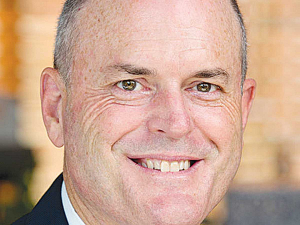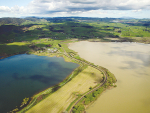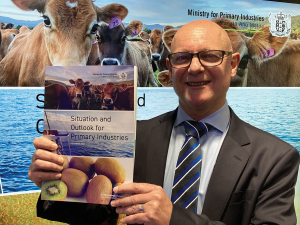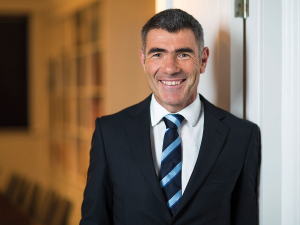A long-term strategy is required for water storage, explains Todd Muller, National’s agriculture spokesman.
It’s been pleasing to see some much-needed rainfall over the past few weeks. However, for many of you, this is nowhere near enough and drought continues to bite. The reality is that it will take more than a sprinkling of rain to combat the effects of drought.
What is really required is a long-term strategy that manages and implements our water in a responsible and efficient way.
Our farmers are the most efficient producers of food and fibre in the world. But it’s hard to keep this high standard when crops aren’t growing and there’s no access to a reliable water source. Farmers are facing new challenges with hotter, drier and more volatile conditions. And, unfortunately, our water infrastructure is not good enough to address this in many regions.
New Zealand’s water discussion over recent years has been too one dimensional and betrays its true importance. While irrigation has been held up by many as simply enabling intensification this is not how we should be approaching it.
Water storage utilised effectively has positive impacts on the environment, economy and our communities. It can be utilised to support renewable energy generation, improves water flow and recharges aquifers. It enables land use change and helps farmers maximise market opportunities. It also improves municipal water supplies and provides vital food security by ensuring crops don’t wither up and that stock are well fed and watered.
National is determined to enable water to unlock our economic potential and safeguard our rural communities. We’ve already committed to a Water Infrastructure Fund that will service both urban and rural infrastructure. We view water storage as a critical infrastructure necessity that needs Crown investment.
Access to water brings with it responsibility. Farmers must continue to improve their efforts to farm within science-based limits and meet the highest environmental standards. However, considering the environmental strides made in recent years I’m confident we can get there together.
In New Zealand an environmentally sustainable farming operation is not just a source of pride within the community, but an asset to pass down to future generations.
The previous National Government supported and invested in water storage through Crown Irrigation Investments Ltd. One of the Labour/NZ First/Greens first acts of Government was to disband this, leaving New Zealand with no specific fund for water storage. This was a hugely regressive act and has stalled our nationwide water strategy significantly.
While the Government has signalled some investment through the Provincial Growth Fund, the reality is that it is a scattered and incoherent approach that is synonymous with Shane Jones’ slush fund.
Rather than sprinkling money here and there, National believes there should be a clear vision and a Government who is committed to playing a substantial role in achieving it.
We can’t keep letting our water flow out to sea while our towns run out of water and our farms dry up.
National will provide water storage that delivers for your business, delivers for your environment and delivers for your community.
• Todd Muller is National’s agriculture spokesman











